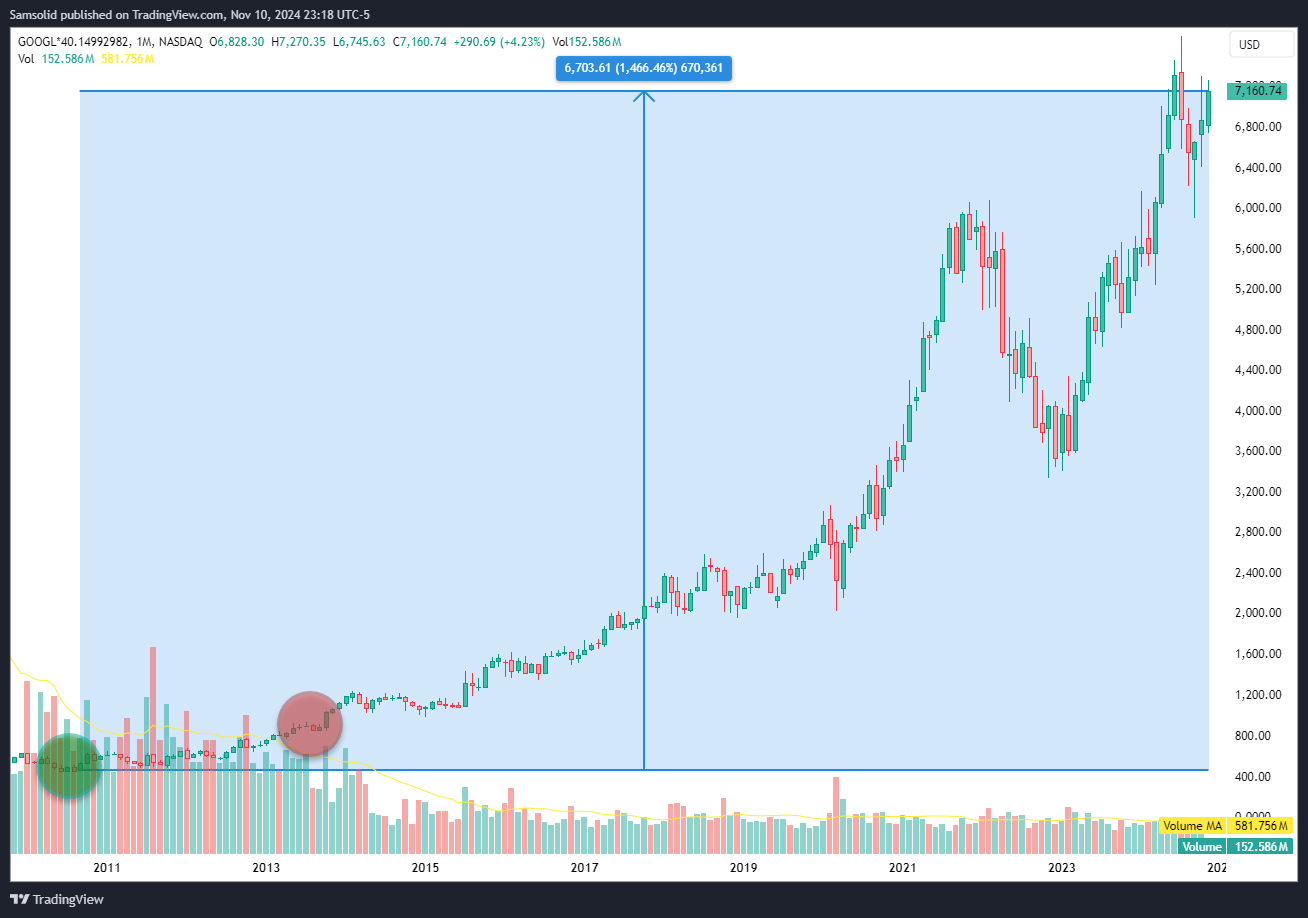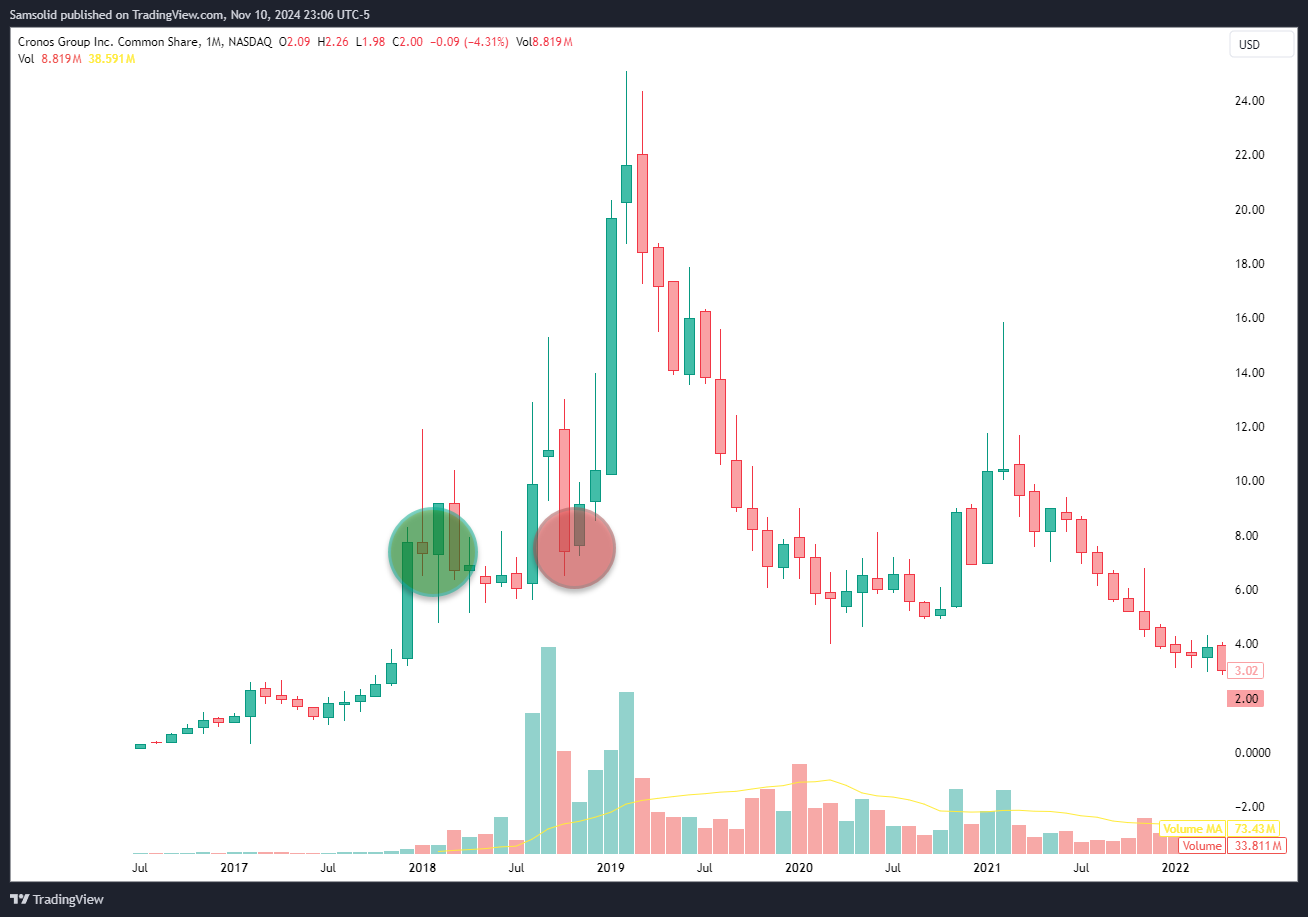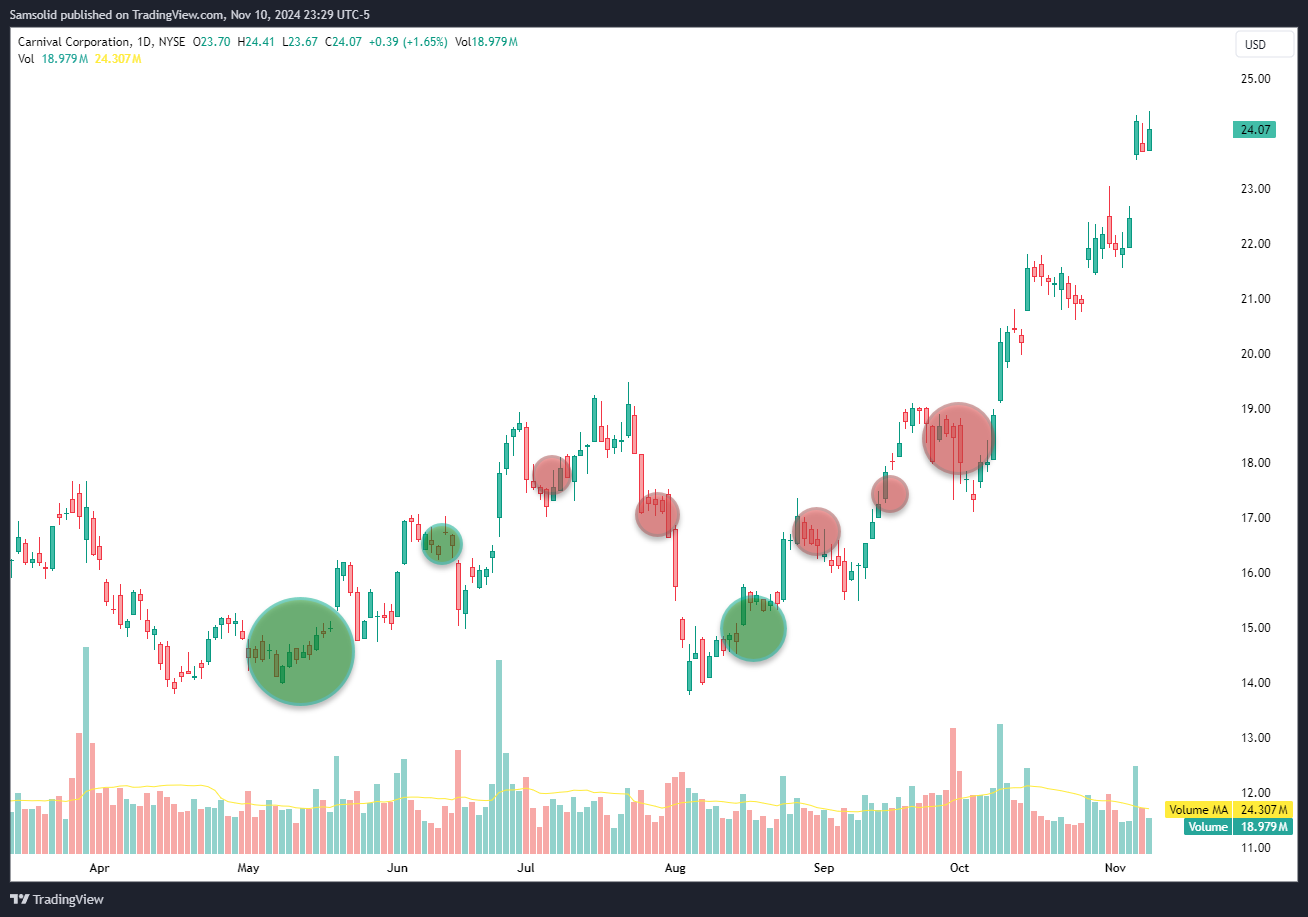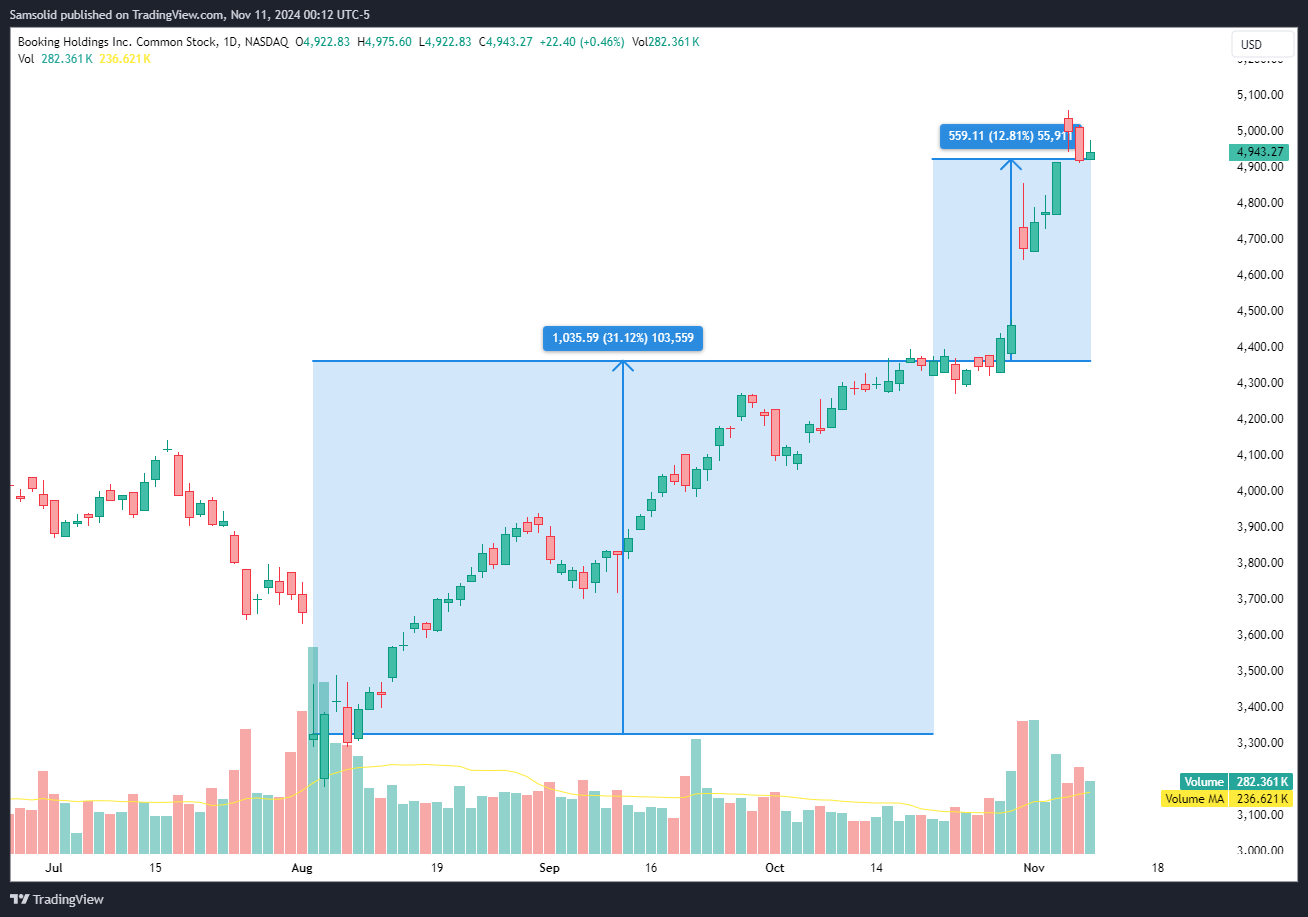Trading Strategy Tribulations
Short Story of Success, Failures, and Regrets
We've seen just how volatile the market can be lately. I've been involved in the stock market since about 2010 and only got a glimpse of how damaging the Global Financial Crisis was. I paid a lot less attention to these things back then. I had just graduated college, moved to New York City, and landed a great IT job. Life was moving FAST. Intraday market moves were the last thing on my mind.
The first stock I bought was $AAPL in 2010. I went all-in at the time, but what did I know? I had heard about it and owned an iPhone, so why not, right? Several months later, after saving up more money, I bought stock in $GOOGL. That's when I started paying closer attention. Little did I know, there's such a thing as paying TOO much attention. Around 2013, my buddy started talking about penny stocks. Oh boy, you can guess where this is going. I sold my $GOOGL position after making about 300% and decided to dabble in the quick game of penny stock gambling. This was a surefire way to lose all my gains from $GOOGL and learn absolutely nothing in the process. If I had held onto $GOOGL until today, I would have seen a 14-bagger. Check out the chart below (adjusted for pre-splits).
Why did I share this story? It’s not really about gambling or entirely avoiding penny stocks (although most people should). It’s about having a strategy and remembering why you started investing in the first place.
With today’s social media, books, articles, and YouTube videos, everyone has access to vast amounts of information at their fingertips. The hardest part isn’t necessarily making money anymore; it’s staying focused and disciplined. Strategy isn’t something you’re born with; it’s something you develop and refine over time. Personally, I’ve learned most of my strategy from the mistakes I’ve made. Reading about a famed investor’s mistake is one thing, but experiencing a 20% drawdown firsthand is very humbling.
The Highs on Weed Stocks Always Fade
I used to be a long-term investor, though somewhat unintentionally. I experienced many wins in the market, but I also had my fair share of losses. One particular instance stands out. I bought $CRON when it was trading in the single digits. During the weed craze in 2017, many of these well-known tickers surged 5-10x in just a few months. I watched $CRON climb from $6 to the high teens and didn't sell a single share. The adrenaline was pumping, and I imagined my $3000 investment turning into $1M. Unfortunately, things didn't pan out that way, and I lacked the necessary insight at the time. I eventually sold it at a small loss. As you can see in the image below (green for buy and red for sell), the stock's trajectory changed shortly after I sold.
I've had plenty more losses and instances where I left significant money on the table. It happens to everyone, even the likes of Warren Buffett, Paul Tudor Jones, and Stanley Druckenmiller. Refer to the quote below for context:
“I think I missed the top by an hour. I bought $6 billion worth of tech stocks, and in six weeks I had left Soros and I had lost $3 billion in that one play. You asked me what I learned. I didn’t learn anything. I already knew that I wasn’t supposed to do that. I was just an emotional basket case and couldn’t help myself. So, maybe I learned not to do it again, but I already knew that.”
This happens to all of us. Don't dwell on mistakes; learn from them. You can think about past events, but if you don't reflect on them, it won't help you avoid similar mistakes in the future. For me, journaling is essential. It always helps to reflect on past situations to prevent repeating the same errors.
Lesson 1: Document all my trades. Record the entry points, reasons for entering, exit points, and reasons for exiting. This process helps me reinforce my strategy.
The Cruises That Sailed Away
Let me share a recent experience. It involved a trade in Cruise Lines, brought to my attention by someone I highly respect. Just a few months ago, interest rates were at their peak, and the market was heavily focused on mega-cap stocks. There was widespread fear and an expectation that interest rates would remain elevated for a long time. As a result, high-debt companies were viewed as poor investments due to the high-interest repayments. During COVID, many cruise lines took on debt to continue operations, and most even cut their dividends. This presented an opportunity to leverage up. Conviction was high, though largely borrowed. Due diligence is crucial for me; it helps me stay committed to a position despite radical price movements.
I made a significant profit on this trade by actively managing it. Most of my core position was in Call Debit Spreads expiring in 2027. I entered the trade around $14, following suggested positions, and went in big. I added more on the way up with naked calls and ITM short puts. As the price appreciated quickly, I began taking profits. With recession fears and the Japanese Yen rallying, I wanted to create a cash position in case of further pullbacks. I trimmed more of the position and bought back the short puts. After the August 5th Yen Carry Trade unwinding, it was time to load up again. I bought back all the short legs in the spreads and went fully naked in the calls. As the price rebounded quickly, I trimmed more and finally exited completely. Naturally, the stock ran much higher after that, leaving significant money on the table. If a trade is working in your favor, never exit completely.
Lesson 2: Take profits from winning positions, but avoid selling out entirely if your investment thesis hasn't fully materialized.
Oh But the Wins Are Very Nice…
I won't spend the rest of this article dwelling on past regrets. Unfortunately, many investors tend to focus more on their losses than their wins. Even the greatest investors and traders can attest to this. Consider this insight from Tim Ferris:
“There is no sure path to success, but the surest path to failure is trying to please everyone.”
If my aim were to stick rigidly to one narrative without ever changing my mind, I wouldn’t feel fulfilled in my goals. I’d just be pleasing others. I change my mind all the time and frequently move in and out of positions. Some people have pointed out mistakes I've made, and that's perfectly fine. If no one questions you, it either means you're lying or everyone is lying to you.
“Most traders take a good system and destroy it by trying to make it into a perfect system.”
- Robert Prechter, Elliot Wave Theory
My system is far from perfect; it adapts with the market flow. Back in 2019, when I was trading options, the market was quite different from what it is today. As the market evolves, so must we. Every day, algorithms take more control of liquidity movements, along with correlations, macro regimes, currencies, GDP, and other factors. The goal is to find the opportunity and strike it for the maximum return.
I had a core position in $BKNG with an average in the low 3000s. When the price hit new all-time highs in late October, I saw more lucrative opportunities that have since yielded greater returns compared to staying in $BKNG and locking the capital for an additional 12% gain.
Summing It All Up
Do I regret selling some things too early? Not really.
Do I have other regrets? Absolutely.
The most important question you need to ask yourself is:
Do I believe I will achieve outsized returns? YES
Best quoted by Stanley Druckenmiller on George Soros:
“Soros is the best loss taker I’ve ever seen. He doesn’t care whether he wins or loses on a trade. If a trade doesn’t work, he’s confident enough about his ability to win on other trades that he can easily walk away from the position. There are a lot of shoes on the shelf; wear only the ones that fit. If you’re extremely confident, taking a loss doesn’t bother you.”
My portfolio comprises a mix of short, medium, and long-term trades. It's not about hitting home runs every time or always being right. I'll conclude with a quote from Stanley Druckenmiller... yes, I know I quote him often, but he's one of my idols.
“It's not whether you're right or wrong that's important, but how much money you make when you're right and how much you lose when you're wrong"
By the way, I did end up selling $AAPL in April 2022 when it was in the 150s. I don't give myself enough credit for that move. I could've held it longer, but that would have meant missing out on a lot of the run-up in 2023.






